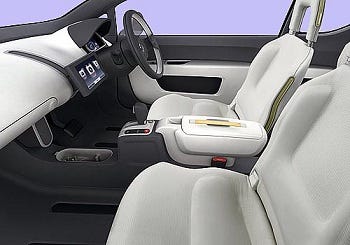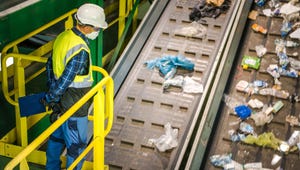Seat belt system manufacturer Key Safety Systems (KSS; Sterling Heights, MI) has adopted the latest impact-modified generation of Hostaform S polyoxymethylene (POM) for the safety system in the subcompact VW up! The material is supplied by Ticona (Sulzbach, Germany).
May 31, 2012
Seat belt system manufacturer Key Safety Systems (KSS; Sterling Heights, MI) has adopted the latest impact-modified generation of Hostaform S polyoxymethylene (POM) for the safety system in the subcompact VW up! The material is supplied by Ticona (Sulzbach, Germany).
|
Low-emission, impact acetal compound makes the grade in seat belt retractor system ratchet wheel (above) for VW up! (below). |
|
KSS made the ratchet wheel of their new seat belt retractor system using Hostaform S9364 XAP². The deciding factor in favor of this particularly low-emission grade is its well-balanced set of properties. Due to its high-level impact toughness and rigidity, the new material is able to absorb very high G forces while retaining its high strength and stability. The ejector in the belt buckle was also made from the same material.
Emissions of Hostaform XAP² are lower than the limits demanded by the automotive industry today. Furthermore, the enhanced low-emission material possesses the same tried and tested properties as a material for vehicle interiors such as chemical and scratch resistance and high-temperature dimensional stability. It also retains its good mechanical properties over a wide temperature range.
Hostaform S 9364 grades are a very special class of their own among the impact-modified POM grades according to their supplier. They set a new scale for impact toughness and weld line strength. This mix of properties allows molded part designs to be optimized further and material to be saved.
"The new generation of materials allows us to offer tailored material solutions that specifically meet the challenging requirements of the automotive industry. Its impact toughness, stability and joint line strength mix in a remarkable way that may help to enhance efficiency of molded part designs and, thus, to reduce the costs per part. When it comes to meeting stricter requirements in the future, its special combination of properties may translate into cornerstones of innovative solutions," says Michael Hörr, project manager of Ticona's Automotive Business Unit.-[email protected]
About the Author(s)
You May Also Like



